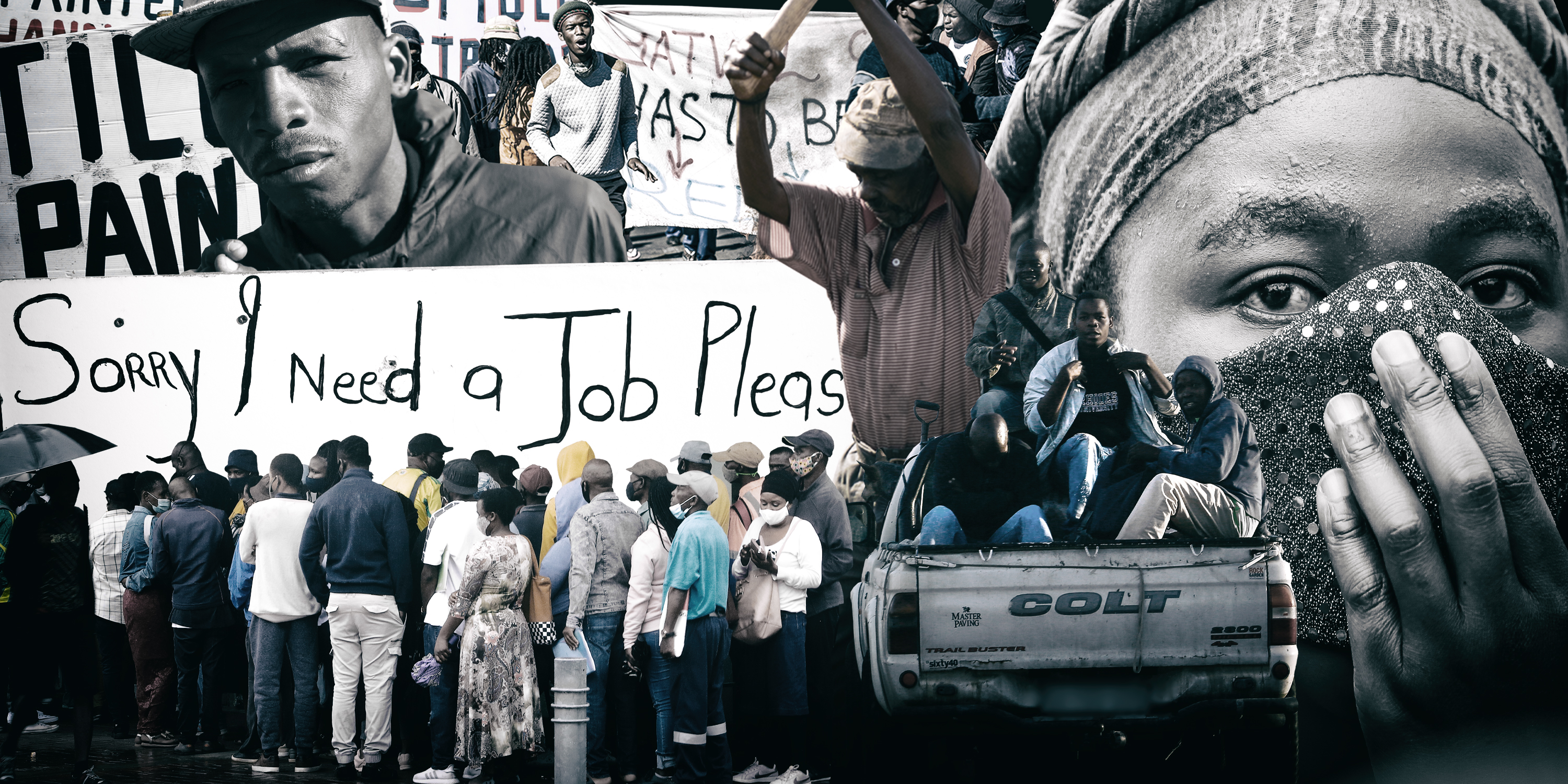On Monday, President Cyril Ramaphosa reiterated that the ANC is determined to create jobs. Still, in our politics the twelve million unemployed people have little voice at all. To all intents and purposes they effectively suffer in silence.
This suggests that in important ways our politics is failing and may well never actually craft a response to the problems that these unemployed people — making up a depressingly large percentage of our population — face. There is also little evidence to show that this will change; quite the opposite — their despair and legitimate anger are bound to only grow.
One of the defining features of our society is its split between insiders and outsiders. While this is partially a result of our racial inequality, one of the biggest differences to the life chances of a person in our society is whether they are employed or not, whether they have a reliable source of income or not.
Prof Steven Friedman has suggested several times that our democracy works for those who have a voice, where those in the suburbs are able to effect political change, while those in townships generally speaking are not.
This is demonstrated at least once every quarter.
Statistics SA releases the quarterly labour force survey, the most comprehensive indicator of how many people are unemployed. And every time it does, we are shocked all over again by the rampant disappearance of jobs in our economy.
There is very little evidence that the people who are actually unemployed are represented in those discussions at all. Instead, on radio and TV, the people who are given a chance to speak about unemployment are the leaders of unions.
This means that it is the leaders of those who are employed who end up speaking about those who are not employed.
It is easy to see how this happens. Unions are one of the few organised labour groups involving the working class, and those who are unemployed tend to come from this class.
But within our actual national debate, it may be difficult to argue that in fact, unions represent the unemployed. Almost by definition, they do not.
As a result, their voice is simply not heard in the debate on issues that most affect them.
There is an awful irony in all this. Generally speaking, the poorer you are, the more you rely on government services. And yet, it is the poor who are muted, not the rich, who have alternative ways to access services.
There are important implications to this shortcoming of our democracy.
It may well mean that those who are not represented in our debates have very little contact with formal society, and government. They may receive services in the form of social grants and medication, and this may be the most that government gives them.
But they will also come into contact with government in the form of police, who have their own issues of legitimacy. And perhaps they have some experience of schooling, but this can be limited, and has been at the very least disrupted by the pandemic.
Within this understanding of our state is a bigger question, which is aired from time to time: if life is getting harder for so many people, why is there no violent revolution against the system which obviously does not work for them?
The key to this might well be an insight credited first to Samuel Huntingdon (who was also quoting Alexis de Tocqueville) and quoted recently by Francis Fukuyama in his book “Identity”. As Fukuyama puts it, “the most politically destabilising group tends not to be the desperate poor, but rather the middle classes who feel they are losing their status with regard to other groups”.
They suggest that most revolutions, or violent uprisings, are led or organised by people in the middle classes, whose formations push for change.
A good example of this is in fact the ANC itself. Many of its leaders (though certainly not all!) came from the black middle classes who were being oppressed by the apartheid government. Poland’s union movement Solidarity led the movement against the communist government there in the 1980s. Famously, the French Revolution itself was led by the petit bourgeoisie.
Here, there is a possibility now that the ANC is no longer able to continue to keep its national coalition of groups and interests together. Prof Raymond Suttner has suggested that the movement may not be able to recover from this position.
Another obvious question here is, could a national movement ever emerge to take the place of the ANC? And if it doesn’t, who will then represent the people who have no formal stake in our country, the outsiders?
It would seem that the surest route to political power in South Africa is simply to win the votes of these 12 million people. They all have the right to vote.
But this is actually very difficult to do. When people become disengaged from the formal mechanisms in society, it may be difficult to re-engage them. There are geographic problems and what may be termed organisational problems as well. One of the strengths of unions in the 19th and 20th centuries was that they could organise at the workplace. If there is no workplace, how do you organise?
As Prof Raymond Suttner notes, there are few examples of movements from which this could emerge. He mentions Abahlali baseMjondolo, which represents shack-dwellers, primarily in KwaZulu-Natal, a group that may be able to get around the challenges of having few resources, and thus able to become a bigger movement.
For the foreseeable future, the political parties may well find tending to their own, insider constituencies is easier. The tragedy of our situation will likely continue.
The outsiders will remain precisely that. Outside, looking in.
The question is, for how long can this situation last before the dam breaks? DM
South Africa
Twelve million people: No job. No prospects. No voice. No representation





